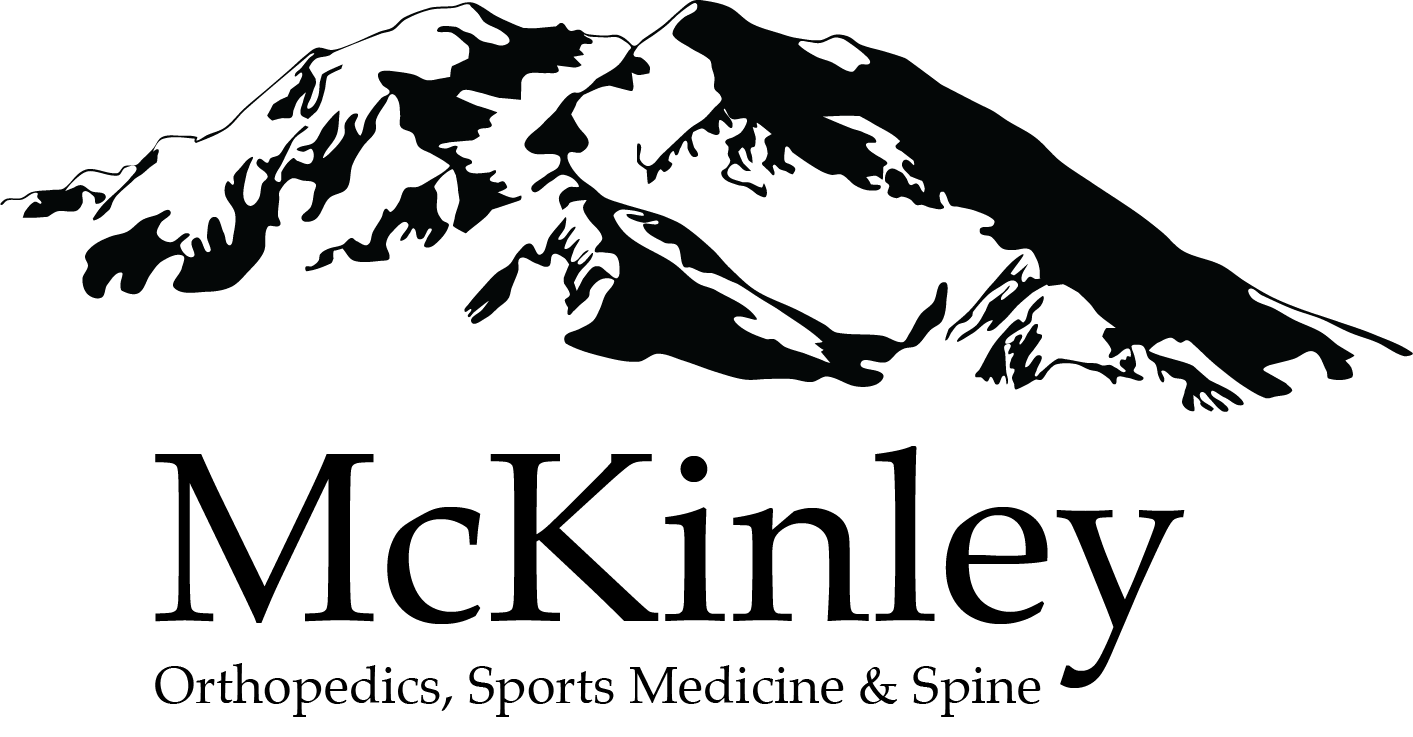COVID-19 Precautions
The McKinley Team is following recommendations in coordination with CDC and Alaska Department of Public Health. McKinley Orthopedics and Sports Medicine is the only clinic in the area offering orthopedic urgent care services. The following protocols are to protect the public health of Alaskans, the staff at McKinley Orthopedics and Sports Medicine, while trying to manage the urgent orthopedic needs of the community.
COVID-19 Pre-Appointment Screening
McKinley Orthopedic and Sports Medicine will be implementing screenings for each patient & guest that arrives at our office locations. Patients will also receive a call prior to their appointment to screen for the possibility of COVID-19. Please review screening questions below.
Have you traveled out of the State of Alaska within the past 14 days? If so, have you been tested?
Have you been in close contact with anyone that has tested positive for - OR - with a presumed positive diagnosis (quarantined) of Coronavirus (COVID-19) within the last 14 days?
Have you developed the following symptoms in the past 14 days?
Extreme fatigue
Cough
Shortness of breath
Fever
The rendering physician will be informed of any patients who have responded positively to the below questions. Patients with a fever of 100.00 or greater will have their appointment cancelled. They will be given information for the CDC & information to schedule a telehealth appointment.
Mask Policy
For the safety of our patients and caregivers, all individuals must wear a protective face mask while inside our facilities. Fabric or homemade masks are acceptable. Masks will be provided to patients and visitors upon entry, if needed.
Telemedicine Appointments
You can be examined and talk to one of our trained experts from the safety of your home. We can prescribe medications and show you treatment options all through our video experience using ZOOM. All you need is a smart phone or computer.
High Risk Patients
Based on what we know now, those at high-risk for severe illness from COVID-19 are:
People 65 years and older
People who live in a nursing home or long-term care facility
People of all ages with underlying medical conditions, particularly if not well controlled.
If you are high risk telemedicine may be ideal for you. Please call 907-456-3338 for any questions.
Helpful Information about the Novel Coronavirus
How to protect yourself
You can protect yourself from COVID-19 infection the same ways you protect against the common cold or seasonal flu.
Sanitize your hands often for at least 20 seconds each time. Alcohol gel works well in most situations (like after coughing, sneezing, or blowing your nose), but handwashing with soap and water should be performed after going to the bathroom, before eating, or when your hands are visibly soiled.
Cover your cough or sneeze with a tissue, then throw the tissue in the trash. (Putting a tissue on a table contaminates the surface of the table with germs.)
Stay home when you are sick.
Avoid touching your eyes, nose, and mouth.
Routinely disinfect frequently touched objects and surfaces, using a cleaning spray or wipe.
Stay informed
Visit the link below to stay informed on what State of Alaska is implementing to prevent the spread of COVID-19.
Alaska DHSS |
The CDC has the most current information about the virus, including everything you need to know about how the virus spreads, how it’s treated, how to protect yourself, and what to do if you get sick. Stay on top of the latest news by visiting the following websites, which are being updated frequently
CDC |
If you feel sick
Use home quarantine or home isolation:
Stay home if you believe you have been exposed to the virus, even if you are not showing any symptoms, and contact your health care provider.
If you have traveled to a country on the CDC list of level 2 or 3 travel health notices and feel ill, contact your health care provider.
Stay home when you are sick, especially if you have respiratory illness symptoms. Whether you have seasonal flu, the common cold, or something else, it’s important you stay away from others when sick.
Monitor yourself for fever, coughing, and shortness of breath.
If unable to contact a physician, you can call the FMH COVID19 hotline for advice at 907-458-2888.
